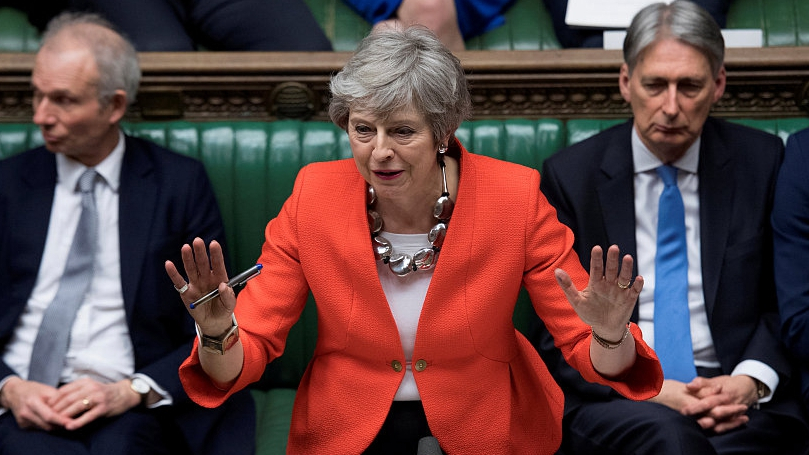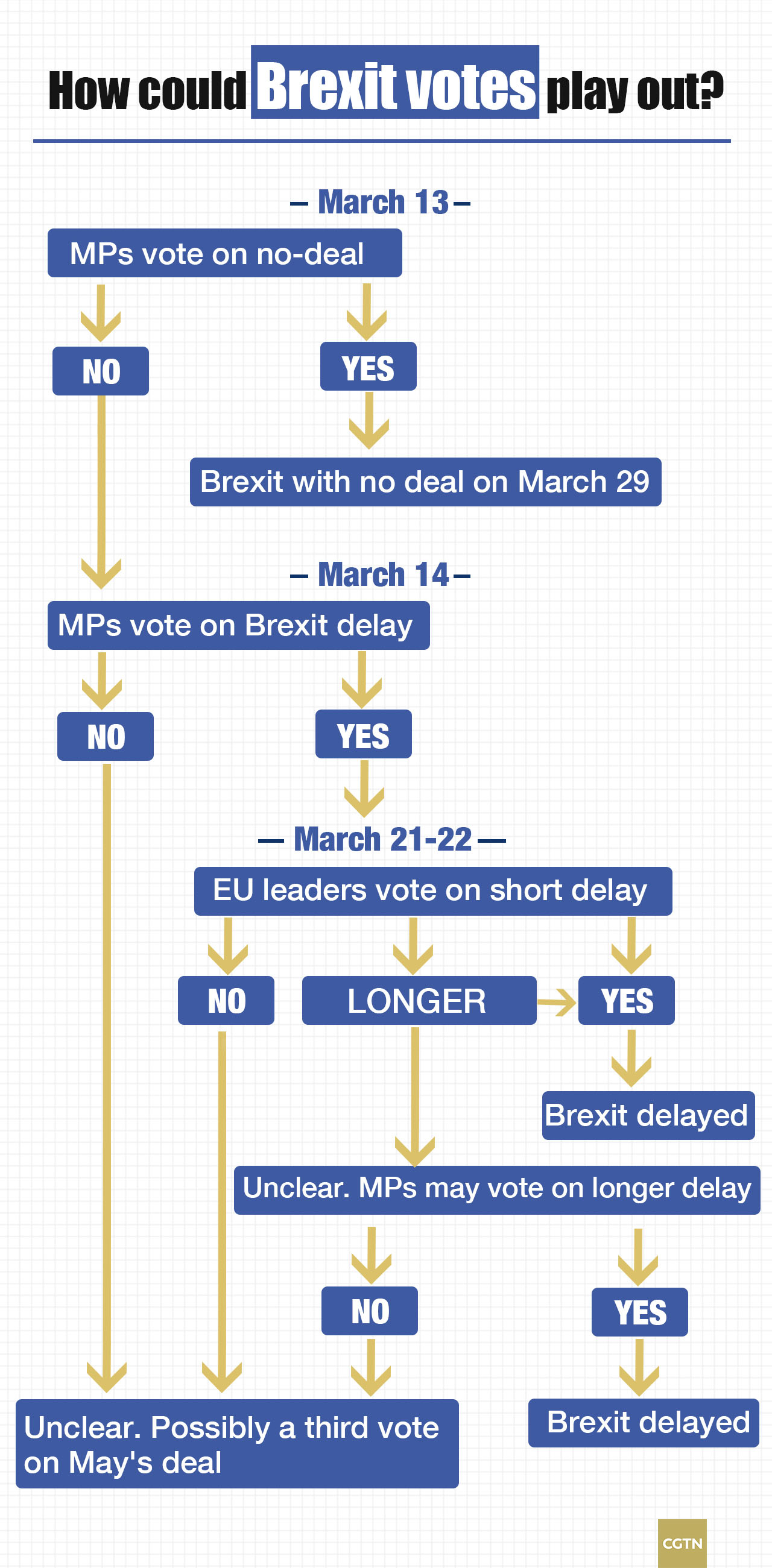
Europe
15:50, 13-Mar-2019
May on edge as UK government takes no position on no-deal
Updated
17:08, 13-Mar-2019
By John Goodrich

What next for Theresa May, the beleaguered British prime minister whose Brexit deal was again crushed by parliament on Tuesday evening?
May has battled stoically on despite setback after setback over the past two years, but after the latest comprehensive loss there is renewed speculation about her future.
Read more:
The prime minister has suffered the heaviest (230 votes) and fourth heaviest (149 votes) defeats in parliamentary history in the past two months, and over the next two days the House of Commons will essentially take control – the government is not taking a position on Wednesday's no-deal vote and isn't expected to do so on a likely vote on Thursday on a delay.
To be going into a vote which determines whether Britain leaves the EU without agreement – a scenario economists have warned would cause significant damage and May has said would weaken national security – without a lead from the government appears from the outside to be a stunning position and adds ammunition to those who claim May's administration has lost control.

The probability is that MPs will reject the option of leaving the bloc without a deal, and that a further vote on delaying Brexit will take place.
But the real intrigue over the no-deal vote will be in the splits it reveals, particularly within the governing Conservative Party. Its MPs will be given a free vote, allowing them to vote according to their conscience rather than their party, in an effort to prevent resignations.
May is yet to confirm which way she will vote, though reports on Tuesday evening suggested she would opt against a no-deal. With talk of her resignation, an election or a fresh referendum renewed by the sheer scale of Tuesday evening's defeat, the problem remains: Has anyone got a plan that could win a majority?
In May's own party, there is huge division – hence the free vote.
Some, such as former foreign secretary Boris Johnson argue a no-deal is the best option. Others, such as prominent cabinet minister Amber Rudd, have said they would resign if no-deal became government policy. Still others back a softer version of Brexit more akin to the broad proposals of the opposition Labour Party.
The free vote papers over these cracks in one sense. It means no one will be bound to resign. But it will also show how far apart these groups are.
And that lack of unity is reflected across the parliament. By Thursday evening, MPs will probably have voted to delay Brexit. But to what end?
As May herself said on Tuesday, "The EU will want to know what use we mean to make of such an extension. This House will have to answer that question. Does it wish to revoke Article 50? Does it want to hold a second referendum? Or does it want to leave with a deal but not this deal?”
With 16 days until the scheduled Brexit date, there is no indication that any of those options – or a snap general election – has momentum behind it. And no indication that Britain is any closer to knowing what it wants from Brexit.

SITEMAP
Copyright © 2018 CGTN. Beijing ICP prepared NO.16065310-3
Copyright © 2018 CGTN. Beijing ICP prepared NO.16065310-3